The work done by the system in a cyclic process involving one mole of an ideal monoatomic gas is −50kJ/cyc≤. The heat absorbed by the system per cycle is
Zero
50 kJ
−50kJ
250 kJ
The correct Answer is:B
To solve the problem, we will use the first law of thermodynamics, which states:
ΔU=Q−W
Where:
- ΔU is the change in internal energy,
- Q is the heat absorbed by the system,
- W is the work done by the system.
Step 1: Understand the cyclic process
In a cyclic process, the system returns to its initial state after completing the cycle. Therefore, the change in internal energy (ΔU) for a complete cycle is zero.
ΔU=0
Step 2: Apply the first law of thermodynamics
Since ΔU=0, we can rewrite the first law of thermodynamics as:
0=Q−W
This can be rearranged to find Q:
Q=W
Step 3: Substitute the given values
We know from the problem that the work done by the system is −50kJ:
W=−50kJ
Substituting this value into the equation for Q:
Q=−(−50kJ)=+50kJ
Step 4: Conclusion
Thus, the heat absorbed by the system per cycle is:
Q=+50kJ
Final Answer:
The heat absorbed by the system per cycle is 50 kJ.
---
- ΔU is the change in internal energy,
- Q is the heat absorbed by the system,
- W is the work done by the system.
In a cyclic process, the system returns to its initial state after completing the cycle. Therefore, the change in internal energy (ΔU) for a complete cycle is zero.
Since ΔU=0, we can rewrite the first law of thermodynamics as:
We know from the problem that the work done by the system is −50kJ:
Thus, the heat absorbed by the system per cycle is:
The heat absorbed by the system per cycle is 50 kJ.
Topper's Solved these Questions
- CHEMICAL THERMODYNAMICS BOOK - VMC MODULES ENGLISHCHAPTER - CHEMICAL THERMODYNAMICS EXERCISE - IN - CHAPTER EXERCISE - A
9 Videos
- CHEMICAL THERMODYNAMICS BOOK - VMC MODULES ENGLISHCHAPTER - CHEMICAL THERMODYNAMICS EXERCISE - IN - CHAPTER EXERCISE - B
10 Videos
- CHEMICAL THERMODYNAMICS BOOK - VMC MODULES ENGLISHCHAPTER - CHEMICAL THERMODYNAMICS EXERCISE - SOLVED EXAMPLES
19 Videos
- CHEMICAL KINETICS BOOK - VMC MODULES ENGLISHCHAPTER - CHEMICAL KINETICS EXERCISE - JEE Advanced (Archive)
52 Videos
- CLASSIFICATION OF ELEMENTS AND PERIODICITY IN PROPERTIES BOOK - VMC MODULES ENGLISHCHAPTER - CLASSIFICATION OF ELEMENTS AND PERIODICITY IN PROPERTIES EXERCISE - JEE ADVANCE (ARCHIVE)
30 Videos
Similar Questions
Knowledge Check
A thermodynamic process of one mole ideal monoatomic gas is shown in figure. The efficiency of cyclic process ABCA will be
A0.25B0.125C0.5D0.077
One mole of monoatomic gas is taken round the cyclic process. Heat absorbed by gas in process AB is
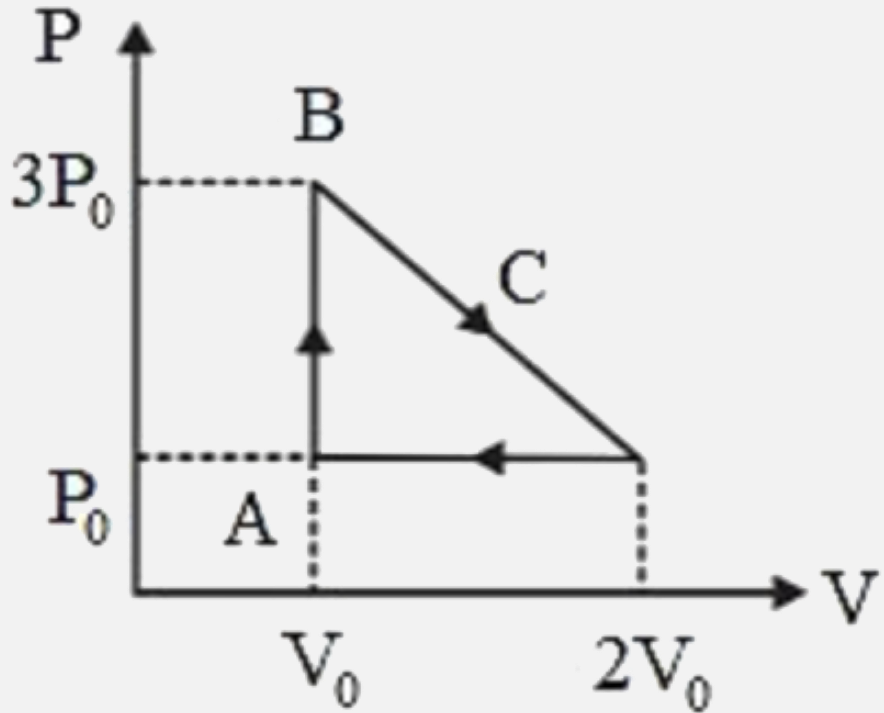
View SolutionIn a cyclic process, work done by the system is
View SolutionWork done (in kJ) by the gas in the following cyclic process is
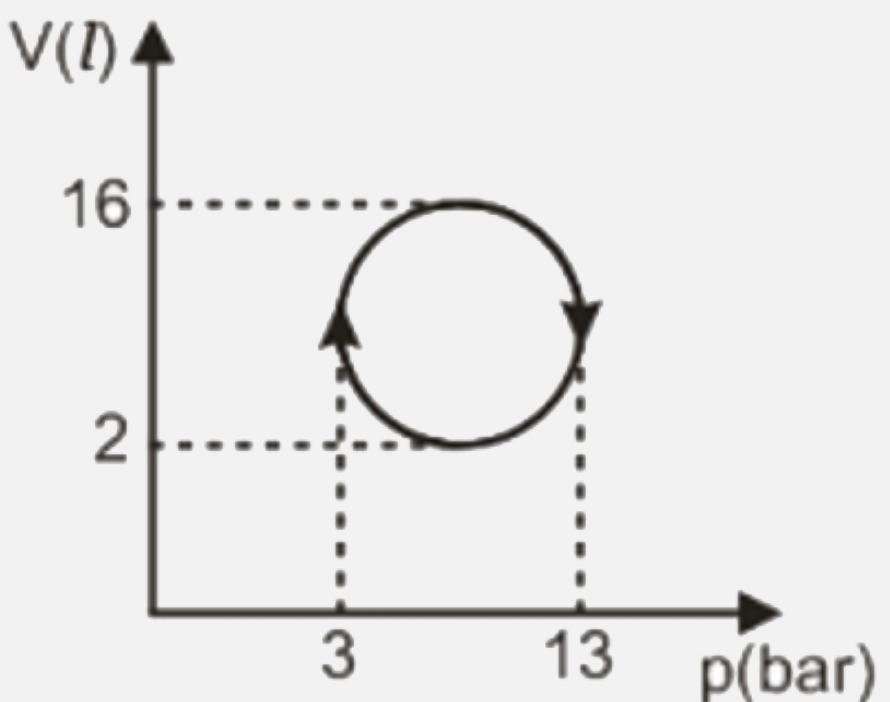
View Solutionp-T diagram of one mole of an ideal monatomic gas is shown. Processes AB and CD are adiabatic. Work done in the complete cycle is
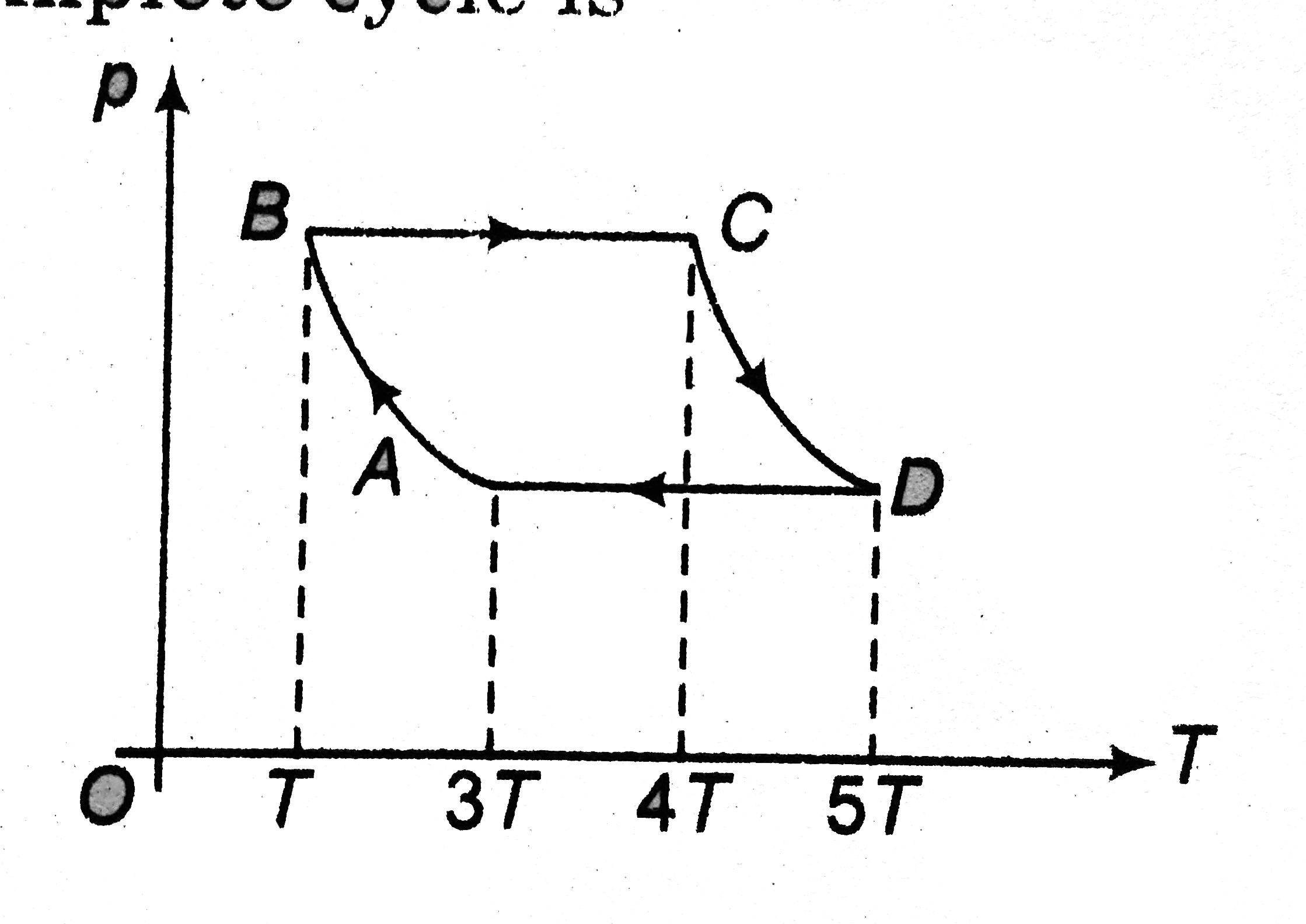
View SolutionOne mole of an ideal monoatomic gas is taken through a cyclic process as shown. Choose the correct option(s).
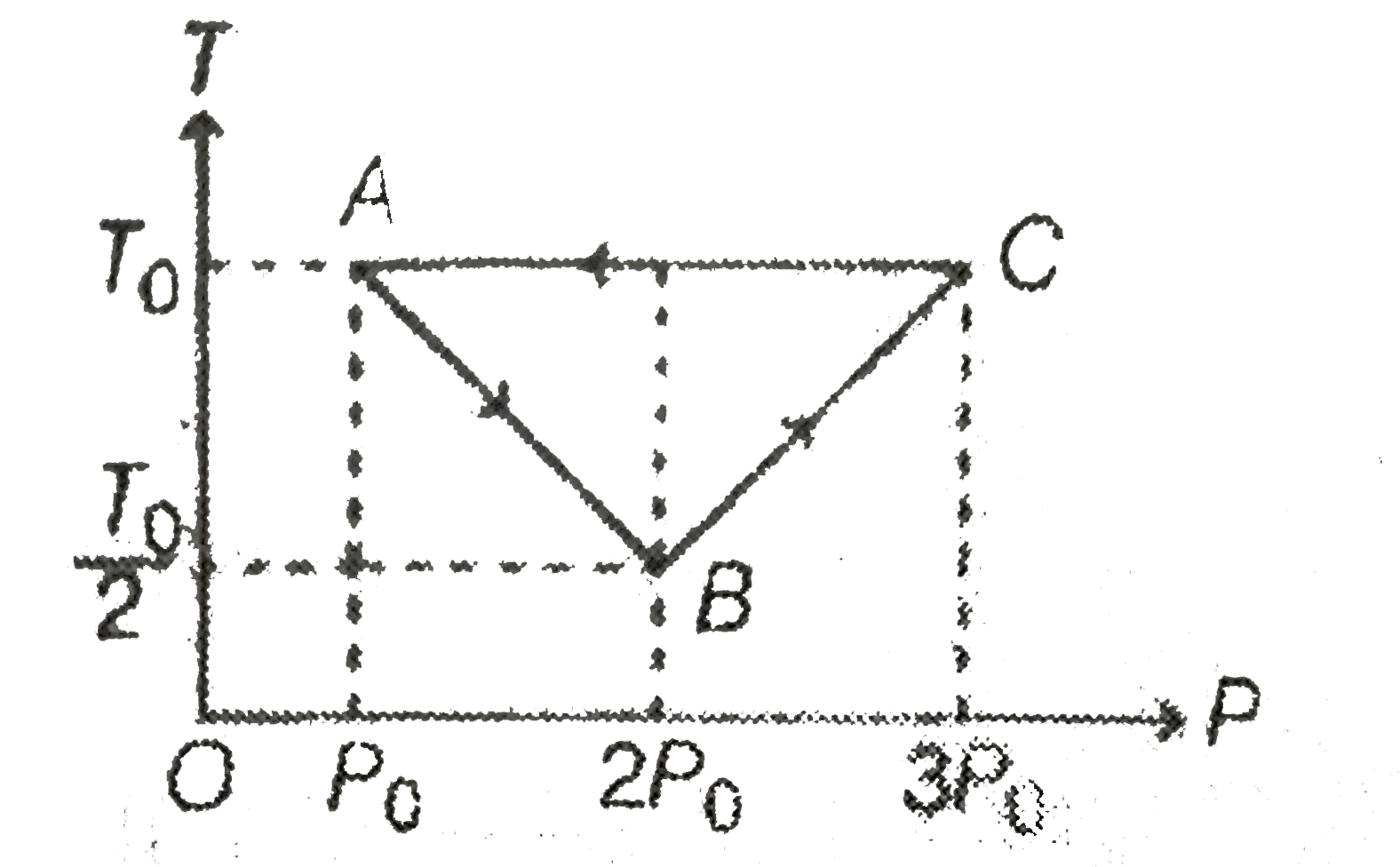
View SolutionWhich one is not correct for a cyclic process as shown in the figure ?
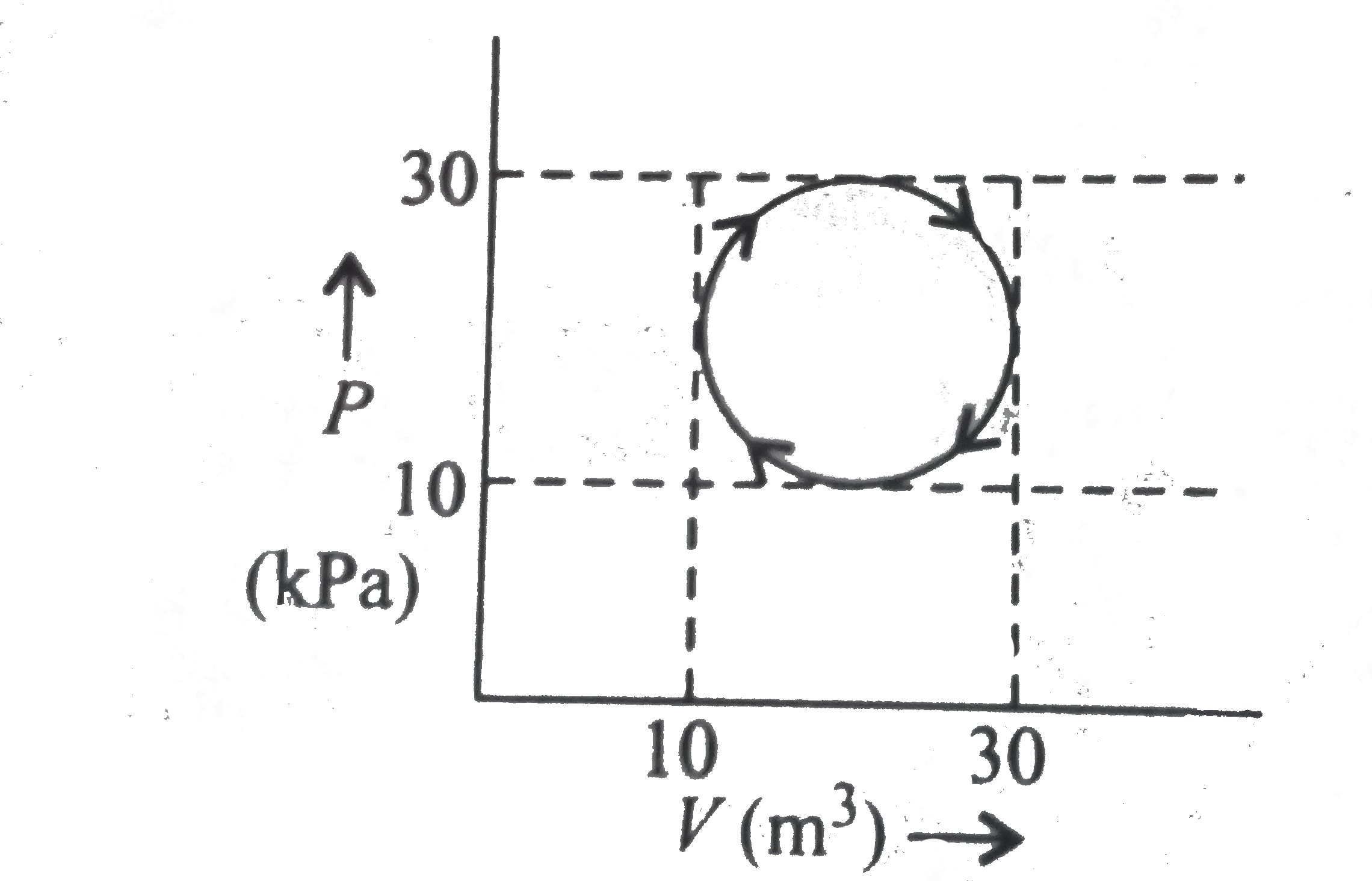
View SolutionA thermodynamic process of one mole ideal monoatomic gas is shown in figure. The efficiency of cyclic process ABCA will be

View Solution
